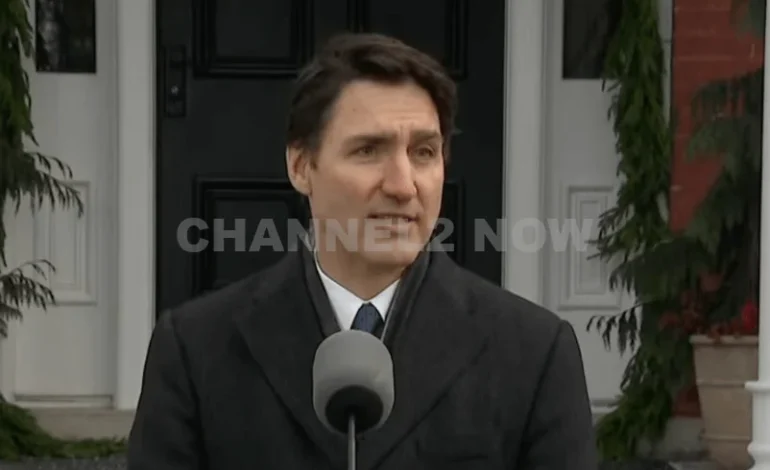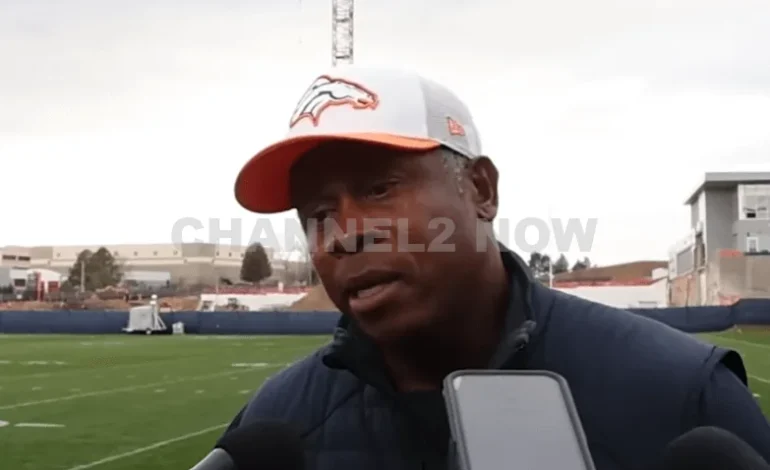
Prime Minister Justin Trudeau has made the momentous decision to step down as leader of the Liberal Party and, by extension, as the prime minister of Canada. This announcement marks the end of a transformative era in Canadian politics under Trudeau’s leadership, a tenure characterized by a blend of groundbreaking reforms, significant challenges, and a commitment to progressive values
Prime Minister Justin Trudeau has made the momentous decision to step down as leader of the Liberal Party and, by extension, as the prime minister of Canada. This announcement marks the end of a transformative era in Canadian politics under Trudeau’s leadership, a tenure characterized by a blend of groundbreaking reforms, significant challenges, and a commitment to progressive values.
Speaking from the familiar setting of Rideau Cottage in Ottawa on Monday, Trudeau conveyed his decision with a mix of resolve and introspection. His resignation, he explained, will take effect only after the Liberal Party conducts a thorough national process to select a new leader, ensuring a seamless transition of power.
“I intend to resign as party leader, as prime minister, after the party selects its next leader through a robust, nationwide, competitive process,” Trudeau said. The statement highlighted his dedication to maintaining stability within the party and the country during this pivotal moment.
At 53 years old, Trudeau has served as Canada’s 23rd prime minister since his historic election victory in 2015. His nearly decade-long tenure has been marked by ambitious policy initiatives and an unrelenting focus on unity and inclusion. During his address, Trudeau reflected on his unwavering commitment to Canadians and his deep connection to the nation’s well-being.
“I’m a fighter. Every bone in my body has always told me to fight because I care deeply about Canadians. I care deeply about this country, and I will always be motivated by what is in the best interest of Canadians,” he declared. These words underscored his enduring passion for public service and his belief in the values that have guided his leadership.
Challenges and Turbulence Within Government
The announcement comes amidst a period of turbulence within Trudeau’s government, marked by key resignations and waning public support. Last month, Deputy Prime Minister and Finance Minister Chrystia Freeland resigned, citing fundamental differences with Trudeau over how to navigate the economic challenges posed by the incoming U.S. administration under President-elect Donald Trump.
Freeland’s resignation was a significant blow to the government. In a public letter, she emphasized the pressing need to address the threats posed by Trump’s proposed aggressive economic nationalism, which included potential tariffs on Canadian imports.
“Our country today faces a grave challenge,” Freeland wrote. “The incoming administration in the United States is pursuing a policy of aggressive economic nationalism, including a threat of 25 percent tariffs. We need to take that threat extremely seriously.” She also criticized the idea of resorting to “costly political gimmicks” and called for a unified “Team Canada response” to counter these challenges. Freeland’s letter revealed the depth of her concerns and her belief that Canada required a cohesive and strategic approach to navigate the impending economic turbulence.
Freeland’s departure was accompanied by Trudeau’s offer to place her in another cabinet role, which she declined. Her exit was followed by the appointment of Dominic LeBlanc, Minister of Intergovernmental Affairs, to assume the role of finance minister on an interim basis. Additionally, Housing Minister Sean Fraser recently announced his decision not to seek reelection, citing personal reasons and a desire to prioritize his family.
Declining Support for the Liberal Party
These high-profile resignations have coincided with a noticeable decline in public support for the Liberal Party. Recent polls reveal that the party is at its lowest level of support in years, trailing the opposition Conservative Party by a staggering 21-point margin. This decline in popularity comes ahead of the next federal election, which must be held by October 20.
For Trudeau and the Liberal Party, this moment presents a critical juncture. The challenges of declining support, coupled with internal dissent, have underscored the need for a reinvigorated approach to leadership. As the party navigates this transition, the process of selecting a new leader will be pivotal in shaping its future direction.
A Legacy of Leadership and Reform
Trudeau’s tenure as prime minister has been defined by a series of landmark achievements and pivotal moments. His leadership during the COVID-19 pandemic demonstrated his ability to steer the country through an unprecedented crisis, implementing policies that balanced public health measures with economic support for Canadians. Under his government, Canada made significant strides in addressing climate change, with ambitious environmental policies aimed at reducing greenhouse gas emissions and transitioning to a greener economy.
Social equity has also been a cornerstone of Trudeau’s leadership. His government introduced progressive policies aimed at promoting gender equality, reconciliation with Indigenous peoples, and the protection of minority rights. These efforts have cemented his legacy as a leader who prioritized inclusivity and fairness in Canadian society.
However, Trudeau’s tenure has not been without controversy. From questions surrounding ethics in government to challenges in implementing certain policy initiatives, his leadership has faced scrutiny from critics. Despite these challenges, Trudeau’s commitment to his vision for Canada remained steadfast.
A Parallel to His Father’s Legacy
Trudeau’s decision to resign mirrors the path of his father, former Prime Minister Pierre Elliott Trudeau, who also stepped away from politics before a subsequent election. Pierre Trudeau served as Canada’s prime minister from 1968 to 1979 and again from 1980 to 1984, leaving behind a legacy of transformative leadership. The parallels between father and son are striking, both in their approach to leadership and their eventual decisions to step back at pivotal moments in Canadian history.
For Justin Trudeau, this decision marks the end of nearly a decade of leadership during which he sought to navigate Canada through a rapidly changing global landscape. His announcement serves as a reminder of the cyclical nature of political leadership and the enduring challenges of governance.
The Path Forward for the Liberal Party
As Trudeau prepares to step away from the helm, the Liberal Party faces the daunting task of rebuilding under new leadership. The process of selecting a new leader will be critical in determining the party’s trajectory as it seeks to address current challenges and position itself for success in the upcoming federal election.
The next leader will inherit a party at a crossroads, grappling with internal divisions, declining public support, and the need for a renewed vision. Rebuilding trust with Canadians and articulating a clear and compelling policy agenda will be essential in revitalizing the party’s fortunes.
As the political landscape continues to evolve, Trudeau’s decision to step down signals a shift in Canadian politics. The Liberal Party’s ability to navigate this transition will be closely watched by citizens and political observers alike, as the country prepares for the next chapter in its political journey.



